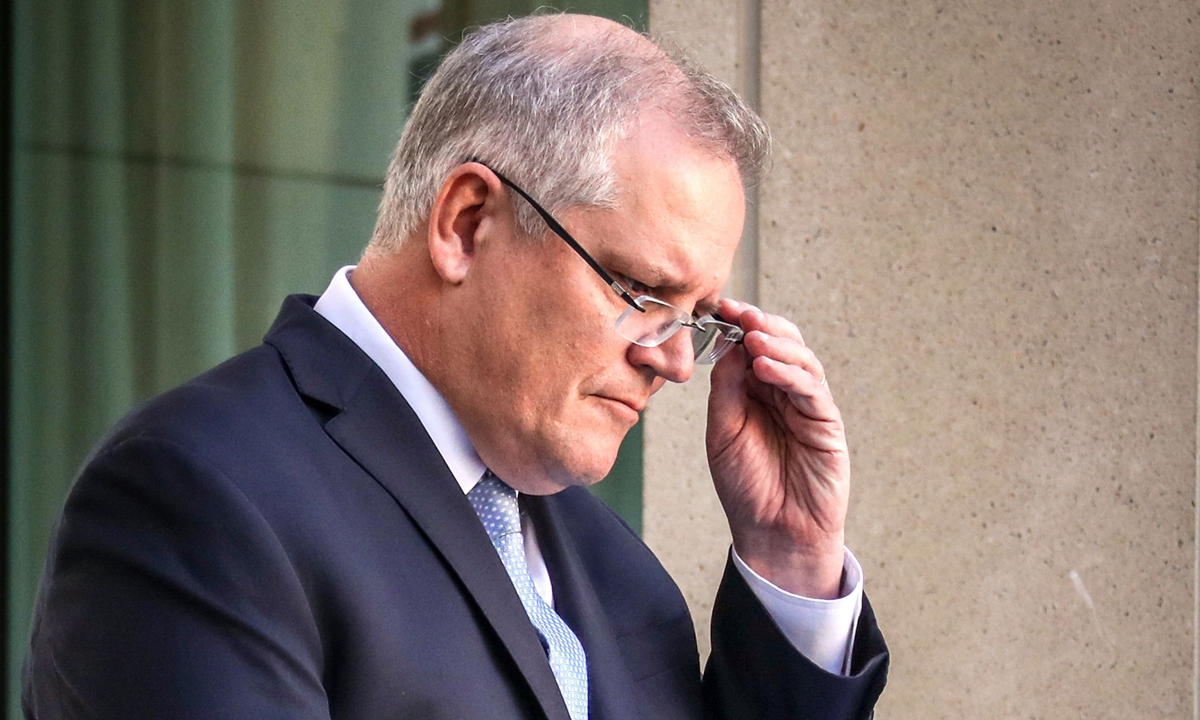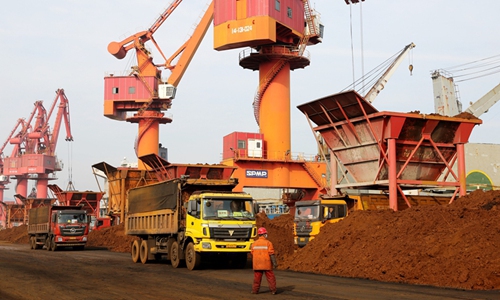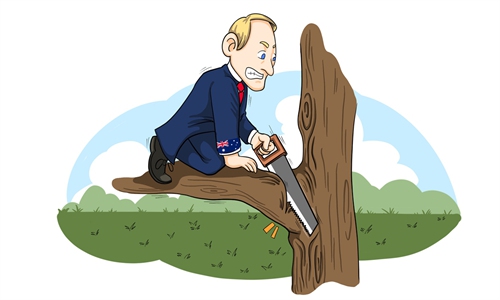Morrison's 'economic coercion' remarks risk further sinking China ties: observers
Canberra 'can't afford decoupling from Beijing’

Australia's Prime Minister Scott Morrison reacting during a press conference at Australia's Parliament House in Canberra on March 22, 2021. Photo: VCG
Chinese observers said that Australian Prime Minister Scott Morrison's provocative remarks could push China-Australia relations deeper into the abyss, as Morrison called for G7 nations' support of reforms to the World Trade Organization (WTO) to blunt "economic coercion."
As Australia's trade disputes and souring relations with its largest trading partner - China - continue, Morrison told the Perth USAsia Center on Wednesday ahead of the G7 meeting that the global rules-based order is "under renewed strain," media reported.
"The most practical way to address economic coercion is the restoration of the global trading body's binding dispute settlement system," he noted, arguing it was the best way to blunt Beijing's campaign of "economic coercion" against Canberra and counter Chinese competition in the Indo-Pacific region, according to the Financial Times on Wednesday.
This comment showed that Australia could hardly afford economic decoupling with China, despite Canberra-initiated tensions between the two countries, and it is in urgent need of help from its Western partners to rewrite the rulebook on the global economic order based on its interests, Chen Hong, a professor and director of the Australian Studies Centre, East China Normal University, told the Global Times on Wednesday.
Chen said Morrison's "economic coercion" accusation is a lie and his call for WTO reforms aims to politicize and weaponize the organization.
Analysts predicted Australia's trade with China would further plunge, including bulk commodities such as iron ore, wreaking havoc throughout Australia's economy - especially after China's top economic planner indefinitely suspended all activities under the China-Australia Strategic Economic Dialogue on May 6.
China's imports from Australia rose 13 percent to $14.86 billion in April from the previous month, slowing from 28-percent monthly growth in March, a trend that analysts said mirrors an accelerating trade decoupling as China pushes diversification efforts amid icy bilateral relations.
The hostile remarks toward China have won Australia a label as the vanguard for the US' anti-China campaign, which is intended to create a public stunt and gain the backing of like-minded Western countries of the G7 group, Chen said.
Yu Lei, chief research fellow at the Research Center for Pacific Island Countries of Liaocheng University in East China's Shandong Province, told the Global Times that during the G7 meeting, the Australian prime minister could try to win support from the US-led G7 nations to unify their stances and policies against China and strengthen containment of China.
Yu said that China can work with developing countries to oppose hegemony in international relations, the cold war of international politics, and the politicization of global economic and trade cooperation at BRICS summits and G20 meetings as countermeasures.
Inviting the Australian prime minister is one of the gimmicks of the G7 group to expand its influence, and some topics - including the Taiwan question - are very likely to be covered during the meeting, Chen predicted.
However, the observers pointed out that Morrison's move to follow a "wolf pack strategy" or an attempt to use strength in numbers to counter China is merely an illusion.
The group members are unlikely to blindly follow US to decouple with China as they have their own calculations.
"Their collusion is a sign of its own weakness," Chen noted.




